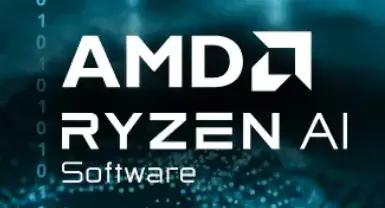Ryzen AI Software as AMD’s collection of tools and libraries for AI inferencing on AMD Ryzen AI class PCs has Linux support with its newest point release. Though this “early access” Linux support is restricted to registered AMD customers.
Earlier this year we reported on AMD previewing a new Linux runtime stack for Ryzen AI NPUs and built off their AMDXDNA kernel accelerator driver. That now appears to be bundled into the Ryzen AI Software collection, which previously was Windows-only. With the newest Ryzen AI Software 1.6.1 point release the only noted change in the release notes is Linux support:
I saw this complaint everywhere. This is basically code for “AMD NPU Support.” AMD prioritized support on Windows first like that’s where all the ML devs were…
To crickets.
No one so much as looked at it.
There might be a chance in heck the NPUs actually work with something now, on both Windows and Linux. Still an off chance, because apparently a $384,000,000,000 company can’t spare a single engineer to work on GGML/llama.cpp…
Really confusing…
All of these bits and pieces were Linux-first except for maybe the XDNA driver. The ROCm interface and libraries have been able to do inference for years if I’m not mistaken. Maybe this is just talking about the full suite in this packaged form now having Linux support?
They’re talking about consumer NPU support, which was indeed Windows only. AMD’s software is kind of a confusing mess.
Yeah, they mention it. The XDNA NPU on all Ryzen chips since 2 years ago. It’s had Linux support for some time.
I did some digging though, and this is indeed just talking about this being “new” for packaged stack, which is nice I guess. Probably not the best choice for devs, but for amateur users it’ll put it on par with Windows.


